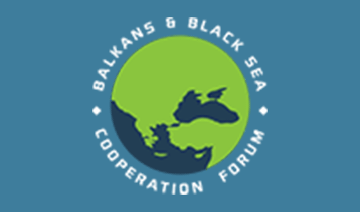Speakers at the inaugural Balkans & Black Sea Cooperation Forum (BBSF) on Thursday touched on the need for greater cooperation between countries in SE Europe and Black Sea region.

The two-day forum kicked off on Thursday in the northeast Greek city of Serres.
In reference to the challenge of fulfilling goals entailed in the 2030 Agenda for Sustainable Development and the Sustainable Development Goals (SDGs 2030), speakers referred to a shift in regional European alliances and political forces, even in the Black Sea region.
“This is an initiative (the forum) that promotes friendship and places the city of Serres on the international stage, Black Sea Economic Cooperation (BSEC) Secretary General Michalis Christidis, a former Greek diplomat, underlined.
Christidis referred directly to the challenges faced by Europe in the present, including the refugee/migrant crisis and terrorism, adding that recent election results in France and the Netherlands showed that “Europe, our common home, can now move forward after 60 years.”
The secretary general of the Conference of Peripheral Maritime Regions of Europe (CPMR), Eleni Marianou, emphasized that Europe must serve as a global “player” amid the current juncture and difficulties faced by the 17 countries in SE Europe and the Black Sea region.
Marianou said it was important for regional states to jointly develop strategies and priorities for overall economic growth.
Antonia Zafiri, representing EU Commissioner Johannes Hahn, whose portfolio includes European neighborhood policy & enlargement negotiations, said cross-border cooperation is imperative for dealing with current challenges. She added that political and economic reforms in the region’s countries, particularly those in the western Balkans, make their European course a strategic goal.
The forum is organized by the Geo Routes Cultural Institute (GRCI), and is held under the auspices of various international, European and Black Sea region organizations, in cooperation with the Serres regional unit.
The first-ever BBSF kicked off on Thursday in the northern Greek city of Serres, with participants including top EU officials, representatives of institutional bodies in SE Europe and the Black Sea region, along with officials from international organizations, diplomats, corporate executives and academics.
The two-day forum will focus on a series of major international and regional issues.
In his opening remark, GEO Routes Cultural Institute president Yannis Balakakis noted that tensions around the wider region, the ubiquitous deliberations over the allocation and management of natural resources as well as recent geopolitical developments render Greece as an interesting area within the wider region.
“This forum aims to develop policies and to promote new partnerships and business plans,” he said.
In greeting participants and in opening the forum, the deputy regional governor of Serres prefecture, Yannis Moisidis, referred to a milestone for the area, while adding that the intent of all parties involved is to transform the forum into an institution for the city of Serres.
The forum is organized by the Geo Routes Cultural Institute (GRCI), and is held under the auspices of various international, European and Black Sea region organizations, in cooperation with the Serres regional unit.
BBSF’s official partner is the Black Sea Economic Cooperation (BSEC) organization, whereas strategic partners are the European Bank Federation (EBF), the Black Sea Trade and Development Bank (BSTDB) and the Conference of Peripheral Maritime Regions of Europe (CPMR).
Speakers at the forum, among others, are BSTDB president of Ihsan Ugur Delikanli, EBF Chief Executive Wim Mijs and CPMR director of transports Patrick Anvroin.
Developments in the energy sector in the wider region, the role of women in leadership and top management positions, new agricultural and environmental trends as well as cultural and sustainable tourism models will be discussed.
Cultural tourism as a key for sustainable development, based on the UN’s 2015 proclamation for the International Year of Sustainable Tourism for Development, is one of the central themes for this week’s inaugural BBSF.
The event is supported by the Athens-Macedonian News Agency (ANA) and its affiliated Praktoreio 104.9 FM radio station.
BBSF’s official partner is the Black Sea Economic Cooperation (BSEC) organization, whereas strategic partners are the European Bank Federation (EBF), the Black Sea Trade and Development Bank (BSTDB) and the Conference of Peripheral Maritime Regions of Europe (CPMR).
Speakers at the forum, among others, are BSTDB president of Ihsan Ugur Delikanli, EBF Chief Executive Wim Mijs and CPMR director of transports Patrick Anvroin.
The event is support by the Athens-Macedonian News Agency (ANA) and its affiliated Praktoreio 104.9 FM radio station.


 “TAP provides Greece with a leading role,” Scoufias said from the northeast Greek city of Serres, where the two-day forum is taking place. He added that the pipeline project was one of the biggest of its kind in Europe and opens the way for similar projects, while also upgrading the importance of the countries on its route, i.e. Greece, Albania and Italy.
“TAP provides Greece with a leading role,” Scoufias said from the northeast Greek city of Serres, where the two-day forum is taking place. He added that the pipeline project was one of the biggest of its kind in Europe and opens the way for similar projects, while also upgrading the importance of the countries on its route, i.e. Greece, Albania and Italy.